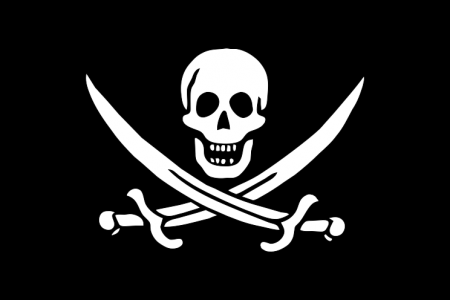
A ship built in Japan, owned by a brass-plate company in Malta, controlled by an Italian, chartered by the French, skippered by a Norwegian, crewed by Indians, registered in Panama, etc. etc. is attacked while transiting an international waterway in Indonesian territory. So – if the pirates ever get arrested – who exactly is in charge of prosecuting them?
Some legal scholars recommend that captured pirates should be prosecuted in the region where they are arrested. Unfortunately, countries that lack the capacity to secure their waters often also have limited resources for prosecution. If more than one country is interested in prosecuting the arrested pirates, it is not immediately clear which country’s judiciary system should be applied. The international legal framework remains vague and sometimes even contradictory. And it starts with the definition, around which there is no consensus: The UN Convention on the Law of the Sea (UNCLOS) defines piracy as 1) an act of violence 2) conducted on the high seas 3) against another vessel 4) and for private gain; while the Convention for the Suppression of Unlawful Acts of Violence against the Safety of Maritime Navigation (SUA) defines it as 1) intentionally seizing or damaging a ship or 2) attempting to seize or damage a ship.
More importantly though, while UNCLOS entails a “universal jurisdiction” which gives every state the right (but not the obligation) to prosecute and punish pirates regardless of where the attack occurs, the SUA requires every signatory state to establish national jurisdiction in order to prosecute pirates. If a state doesn’t fulfill this requirement, the prosecution has to be conducted elsewhere. Without adequate jurisdiction or agreements with prosecuting states, sometimes the only feasible option is to release the suspected pirates – which has happened repeatedly in the past. Peculiarities in legal provisions of several states are further complicating matters. Denmark and Germany, for example, can prosecute pirates only if they have threatened national interests or citizens.
This is not to say that all efforts have been stalled. Pirates have been prosecuted in the US, France, Yemen, Germany and the Netherlands, and various agreements have been set in place between individual states. As a consequence, Kenya became the lead prosecutor of suspected pirates. But with an overload of cases and dwindling financial support, Kenya’s willingness to cooperate is sinking, and the international community has also lost some of its trust in Kenya’s ability to prosecute pirates in a fair and efficient manner.
Several ideas have been discussed to render prosecution more effective: one idea, described as “dedicated piracy chambers plus,” would see national legal systems in the region set up courtrooms or trial chambers dedicated specifically to hearing piracy cases. Another idea is an international tribunal, which would apply “universal” rules (but might be time-consuming and resource-intensive). A third would be a special “Somali” Court outside of Somalia.
The real question, though, is whether making prosecution more effective will actually help to deter piracy. Here, the opinions of legal scholars and practitioners are divided. Some think it’s the best means of combating piracy, while others view it as only one of many factors. Coordinated international operations, better equipped ships or land-based institution-building approaches (especially in Somalia) might be more important. Successful coordinated anti-piracy efforts in Southeast Asia (as discussed in Wednesday’s podcast) demonstrate the importance of regional cooperation.
Be that as it may: changes in international law to effectively facilitate the combat against piracy are direly needed. With such high economic costs associated with piracy, an investment in this area seems like a bargain.

